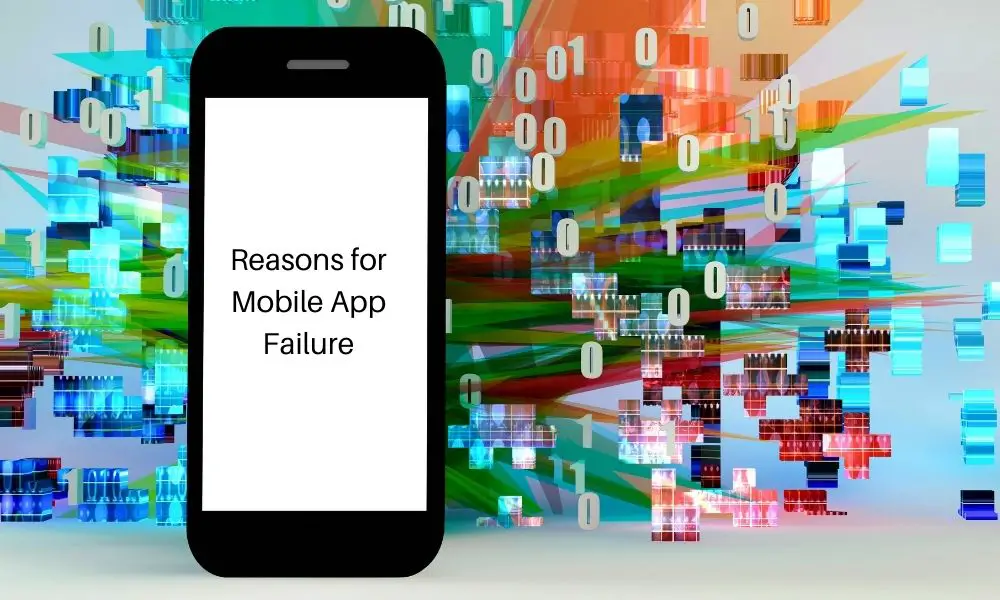Mobile app developers and organizations strive to break into the market with a profitable digital product in our modern age, where most of our work can be done at our fingertips. However, data show that there is a lot of waste. According to current research, after the initial use of apps, 80-90 percent of them are abandoned. It is a significant source of concern, and in this post, we will go deeper into this reoccurring issue to find the best answer. So, without further ado, let’s get down to business.
5 Main Reasons for Mobile App Failure in 2021:
1. Apps’ Complexity
Being explicit about the app’s aim is one of the finest ways to make it useful and simple to use. Apps should contain a bare minimum of useful built-in features and eliminate elements that aren’t relevant to the app’s objective.
Many apps, unfortunately, fall into the trap of attempting to be overly ambitious and failing badly. Users become irritated with apps that have redundant functions and abandon them. People aren’t looking for many bells and whistles; they just want the app to do its job. In the world of app creation, keeping the audience in mind and following the adage “less is more” will work wonders.
See Also: How to Create a Free Music App like Spotify?
2. A Lack of Thorough Testing
App testing is most effective when the apps are still in the development stage. It’s all part of the process of creating a smartphone app. Giving this important component less weight and launching the software will result in issues and frequent complaints about poor user experience.
As a result, the app will receive a lot of negative feedback, allowing other users to ignore the app with ease; as a result, all of the time spent developing the software will be wasted.
During the development stage, each feature should be thoroughly tested regularly, leaving no stone untouched. Bug fixes are easier to implement when the software is tested during development rather than released.
Related: Challenges of Hybrid Mobile Application Testing
3. Problems with Security
Another key factor in app failure is the nagging fear of security vulnerabilities. There are a plethora of ways in which security flaws can harm an app. Building a public-facing API that allows the user to control the server’s functionality and data is one of the most difficult tasks facing the app development team.
Other important difficulties with app security include designing secure code, ensuring that the data being transmitted is correctly encrypted, being conscious of only utilizing approved APIs, and testing the app regularly.
Because these security issues are so complicated and dangerous, it may take programmers and developers more than 12 to 24 months not to fail in this sector and have it fixed.
Related: What Should Companies Do to Protect Cloud Data?
4. Marketing Mistakes
There’s a significant probability that no matter how well-designed and functional an app is if the marketing approach isn’t spot-on, the app will never reach its full potential.
Unfortunately, the app market is already crowded with helpful and worthless apps; therefore, a professional marketing team should be working on a pre-launch and post-launch promotion strategy to make an app stand out.
It will increase the amount of exposure that an app receives. There are various ways to advertise the app, including putting it on different social media platforms, sharing it with friends and family, SEO, television advertising, and more.
You May Like: Common Mistakes Made When Starting a New Business
5. Originality Deficiency
Many publishers sell the same product on the market, but only a few are at the top of their game. So, if you want to be successful, you should look at what your competitors are doing and how they are doing it.
Then, by studying these criteria, determining the app market’s shortcomings and strengths will be a lot easier; Another app will be ignored as though it never existed if this happens. A distinctive value offer is the first step toward gaining user loyalty and a successful business (UVP).
Drafting a vision statement for the desired product is one of the greatest ways to measure success in the app development industry. It accomplishes this by providing a clear path to the application’s end goal. It will also specify the answer to the problem raised by the target audience.
Consider design thinking to be one of the most important aspects of developing a unique mobile app. Through research, product teams apply design thinking. Due to this long research process, they choose whether to validate or reject a product concept via fast prototyping. Innovation emerges as a result of design thinking, and the reason for this is that design thinking examines diverse perspectives on the same problem.
Conclusion
Every mobile app developer wants their company to succeed. It is possible if developers and programmers consider the critical parts of what makes an app effective. Ignoring the finer points of what makes an app effective, and the app becomes synonymous with failure. Having stated that, it will suffice to claim that there will always be a logical explanation for the app’s success or failure. If everything is in its proper position, the app has a strong chance of succeeding.
This is Hamza Iqbal Digital Content Producer for the software development company. I develop and implement content strategies for Cubix, along with aligning business goals with content marketing activities. I actively contribute articles related to digital and content marketing.





















